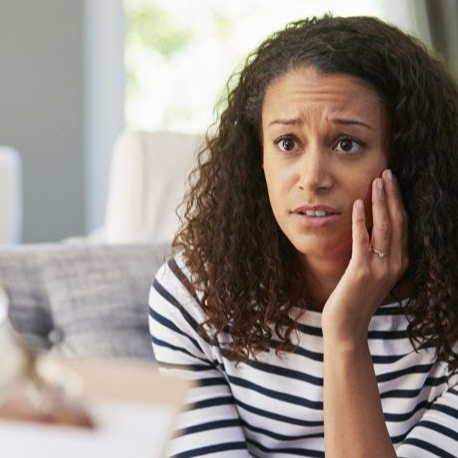Anxiety is the body's natural response to stress, characterized by worry or fear about future events. Common triggers include starting school, job interviews, or public speaking, leading to symptoms like a racing heart or sweaty palms. These are normal stress responses. The causes of anxiety are complex and may involve a combination of genetic and environmental factors. Identifying triggers is crucial for managing and controlling anxiety attacks.
Five Quick Ways to Cope with Anxiety
If your anxiety is related to specific events, symptoms might subside after the event. However, if it interferes with daily life, try these natural remedies to regain control:
1. Change Your Thinking Pattern
Negative thoughts can worsen the situation. Challenge your fears and explore ways to manage them effectively.
2. Practice Deep, Focused Breathing
Try taking four deep breaths over five minutes. Slow, deliberate exhalation can lower your heart rate and bring calmness.
3. Use Aromatherapy
Essential oils, incense, or candles with calming scents like lavender, chamomile, or sandalwood may help reduce anxiety by activating specific brain receptors.
4. Walk or Practice 15 Minutes of Yoga
Stepping away from stressful situations and focusing on physical activity can help alleviate anxious thoughts.
5. Write Down Your Thoughts
Journaling can help externalize worries, bringing relief and clarity.
Six Long-Term Strategies for Managing Anxiety
If anxiety is a regular part of life, a combination of treatments can help achieve lasting calmness.
1. Identify Your Triggers
Work independently or with a therapist to pinpoint anxiety triggers, which may include stressors like caffeine, alcohol, or smoking. Avoid these triggers when possible, or use coping strategies for unavoidable situations. Common triggers include:
- Stressful work environments
- Driving or traveling
- Genetic predisposition
- Withdrawal from certain medications
- Side effects of specific medications
- Past trauma
- Phobias, such as agoraphobia or claustrophobia
- Chronic conditions like heart disease, diabetes, or asthma
- Chronic pain
- Mental health conditions like depression
2. Cognitive Behavioral Therapy (CBT)
This therapy teaches individuals how to think and react differently to anxiety-inducing situations, focusing on changing negative patterns before they escalate.
3. Daily Meditation
Regular meditation can train the brain to let go of anxious thoughts. If sitting still feels challenging, consider starting with yoga.
4. Adjust Your Diet or Use Supplements
Incorporating certain foods or supplements into your diet may reduce anxiety. Effective options include:
- Lemon balm
- Omega-3 fatty acids
- Green tea
- Valerian root
- Dark chocolate
These remedies may take up to three months to show effects. Consult a doctor if you're taking other medications.
5. Maintain Physical and Mental Health
Regular exercise, balanced meals, sufficient sleep, and maintaining meaningful connections with others are effective ways to prevent anxiety.
6. Consult Your Doctor About Medications
For severe anxiety, a doctor may prescribe medication as part of the treatment plan.












Our Customers' Comments
No comments registered